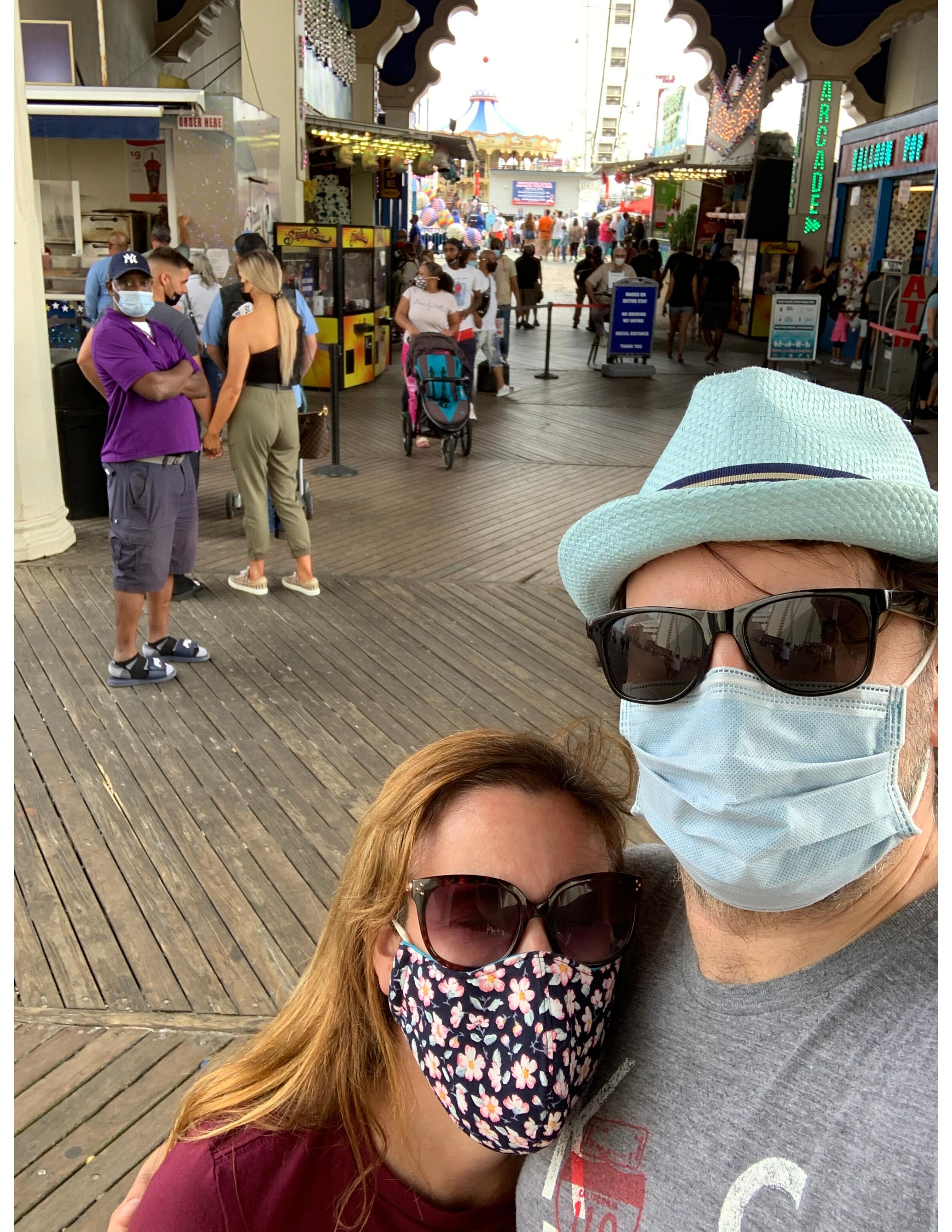Atypical
My story isn’t what I imagine to be the typical writer's story. I was born in Boston and raised just south, in and around the communities of Randolph, Quincy, and Braintree, Massachusetts. I was not a gifted student. Actually, I wasn’t much of a student at all; I found school to be not very engaging and my talents were often ignored or devalued. I was developmentally delayed and required special education. But at the same time, I was drawing maps, and on these maps were stories of people, and this was an escape from the chaos around me. I was later diagnosed with what would come to be known as ADHD with a form of dyslexia. I was put on medicine to help me focus on school and help me fit in socially. Still, I struggled, and often found myself escaping into my imagination.
Struggle
That’s where it all began, but I had no other creative outlet. I was bullied in school, particularly at a Catholic parochial school in Braintree. I grew up amongst the children of Greek Orthodox Christian immigrants, where I didn’t feel Greek enough. I was expected to be at, and later work in, our family restaurant in Quincy. Creativity wasn’t encouraged and the notion that I could be a writer wasn’t particularly compelling as I was failing coursework in the tenth grade—in my worst subject, English. I managed to not fail out of high school, and I limped into college. At the University of Massachusetts, I received praise and recognition, but only in sporadic projects for which the assignment was to tell a story or write dialogue. In my final semester of college, I understood I had talent, but was I going to change directions at that point?
1998
After college graduation I fell into the workforce, but I was a bit unbalanced. My interests weren’t where my skills were. I bounced around a bit, and after a time, I evaluated that my strongest interest was in storytelling. But I couldn’t write, nor did I actually read for pleasure. So I plopped myself down with pieces I probably would’ve read in high school if I’d been more able. I slowly taught myself to read critically. I studied a bit of Latin to help build my vocabulary. When I worked for an educational publisher in my thirties, it was my first time working with other creatives. I took some acting, improv, and comedy classes after work, and I wrote three feature-length scripts. I dabbled with some short stories and one-act plays between multiple sinus infections and head colds.
2009
I moved to Los Angeles. I enjoyed a burst of inspiration and wrote some more. I worked for a music publisher, another creative environment. But I found myself getting sick often. I got bronchitis three times, and colds were a constant recurrence in two and a half years. I struggled socially and financially, and eventually these stresses stopped me from writing, and I began to wonder why I was in Los Angeles besides to enjoy the weather. I moved back to Boston at the end of 2011. I was a bit aimless. I mentioned ADHD earlier. I’d been told that when I found something I loved and wanted to do, I would easily adjust to it and succeed. I thought I had found it with writing, yet I struggled. As I approached forty I’d worked over twenty different jobs, from my parents’ restaurant to being a 1099 contractor for Lyft and Uber; not all the jobs were real career choices. My last career choice was as a real estate agent, and while I was successful at it, and think I would’ve done well, I found myself sketching out story ideas in my free time and loathing that my day was being interrupted by actual work. I was dating around at the time, and when I met a publishing executive, I was scared to say I was a writer. I hadn’t written in five years. So after a successful year in the real estate office, I decided to give it one more try and write a novella or a novel.
2017
Fate had another idea. By New Year’s Day 2017, an itchy rash had broken out over my feet, knees, and elbows, which even prescription medication couldn’t eliminate. I stopped writing again. When the rash went away, I developed a persistent cough. On Mother’s Day, within a month of receiving an Asperger’s diagnosis, a chest X-ray revealed a mass typically indicative of cancer. I was later diagnosed with Hodgkin lymphoma, a blood cancer. It suddenly made sense that all my illnesses had been from a faulty immune system, and the rest of my year was spent receiving chemotherapy and recovering from the chemotherapy. Today, I’m cancer free and in remission, and the prognosis of recurrence lowers every day.
Remission
And in 2018, I met my partner Jennifer Safrey, a published and award-winning author, as well as a copy editor and a yoga instructor. We were in Camden, Maine, and she read me an incomplete piece she’d written. I suddenly remembered my novella draft. I shared my piece, and she encouraged me to start writing again. And I unearthed all these other stories I’d written, in all sorts of states of disrepair. She’s been instrumental in helping me get focused and organized. She’s my critique partner. If there’s a reason things are getting done, it’s first because of my good health, and, second, her.
My Story
I’ve won no awards, I’m a member of no groups, and espouse no political ideology or movement. I am unaffiliated with any political party, either domestic or abroad; though if standing with facts and science is political, so be it. Should I win an award, I’ll be thankful, but my focus would only turn to why I haven’t won other awards. Groups are scary. I’m a mildly sociable outsider. I like genuinely nice and cool people. As a cancer survivor, I believe health care should be a right and no one should go into debt for medical issues. When I hear of a mass shooting, I want politicians to focus on making sure these things never happen again, instead of talking about prayers and rights. I believe the Parthenon Marbles should be returned to the Parthenon in their country of origin. I believe art and artists should be subsidized. But these are complicated issues. I look at individual issues, at individual people. I ask the questions why and what if, almost annoyingly so. You cannot make success alone, nor by only using resources of the community. We need both solitude and help to succeed.

















